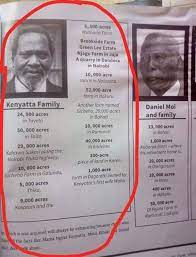Exciting tale of a man that could blind the eyes of enemy raiders, entertain two audiences at the same time, heal the sick through drum beats, tap termites from bare rock and sit on sharp end of his spear ..A story is told of an Omutukwiika Omukwanga child born in 1810 and circumcised in 1832 under the Bakananachi age-set. Wachiye’s father was called Lwasaka and Naumbwa was the name of his mother. Wachiye grows up displaying a unique art and powers of prophecy and mind-blowing tricks that earned him great fame.
In a brief reflection of his background, Batukwiika Bakwaangwa were fourth generation (siimila)) descendants of Mbiriira a key Bukusu leader in the 1700s. The other clusters are Batukwiika Basakha and Batukwiika Bakitang’a). Like Bayemba, Bayitu and Bachemayi, Batukwiika are empowered to give public lectures (Khuswala Kumuse). And just like Bakolati, Baala, Bamutilu and Baengele, the Batukwiika traditionally formed the ruling class wearing Ekutusi (Elder’s Robe). The Late Kijana Wamalwa, phenomenal 21st C political figure, belonged to Baengele Clan.
Born in aching poverty, Wachiye had little to eat and feel proud. Being a full grown man, Wachiye summons his Situma and Nalyanya (his two sons) and Libusi (step-brother). He declares an end to poverty and hatches a plot to acquire wealth and outlive his father’s legacy. He is to guide them rob a Barwa Balaku (Kalenjin) off cattle. The Kalenjin raiders were fierce prompting the three men to question Wachiye’s sanity. He however assured that no harm will fall their way.
He slaughters embusi elao (he-goat), prepares sacred herbs and instructs them to scatter in their muluteka (bamboo) route along the Malakisi River. And now the mission is ready and ripe. Libusi is instructed to attack the calf-pen (emukali) while his sons in the main kraal.
Under cover of darkness, they reach the kraal and everyone amuses their role. They manage to untie the cattle and calves and head their way back. But Alas! An Omulaku woman, out for short call notices an empty kraals and let out a sharp cry. In no time the warriors lit fire touches and keep the pursuit of the robbers. The warriors, under Wachiye’s blinding spell, comb the bamboo forest to no avail. The cattle arrive safely in Wachiye’s homestead, making him a rich man, overnight! Wachiye was known to blind the eyes of the enemies attacking Bukusu homestead and cause them confusion, only returning back with no single spear thrown!
Legend has it that Wachiye’s record includes many other mysterious adventures. On one occasion, Wachiye invited people then set his fire ablaze. Amazingly, he smokes his tobacco pipe right in the middle of the fire. On another encounter, he calls ekokwa (brewing party) and while people were in the house, he would magically disappear during merrymaking; sealing both front and back door. People would then feel being choked by smoke and begin screaming on realizing that both doors were closed. He reappears and calms them. To their awe, both doors would be widely open.
A notable event was when he called people to his home for drinking. As usual, some would be sited in the house while the others outside. To their surprise, he would entertain both audiences with narrations, songs and dance...at the same time, in two places!
Moreover, Wachiye would call invite people at a riverside resort and slaughter a bull for them. He would them move to the deepest part of the river. And right before their eyes, he would make a fire, roast and eat meat, right on top of the water!
Again, while looking after his cattle (the stolen ones), he would thrust a spear into the ground. He would hoist himself and sit at the sharpest end of the spear leaving people speechless! During termite harvesting period (khubilika), Wachiye was known to disappear into one ekhelu (hole in the anthill) and reappear on the other side, with handful termites.
In one of his predictions, he said that Bukusu warriors on returning from looting, upon reaching Sengeli (present day Bokoli), a heifer and calf would outrun them and not even fastest warrior would catch up with them. Surprisingly, once they reach home, they would find the two animals grading peacefully. Alas! That was exactly what happened making people to mesmerize at his unexplainable skills of magic and prophecy. He could even cure illnesses by beating efumbo (long Buganda festival drum) and they would be completely cured.
Like Mutonyi (already narrated about), Wachiye predicted his own downfall. Just like Father Christmas in European Folklore has an evil twin, Krampus, so was Wachiye. Njabikha wa Namachi was his name; he grew jealous of Wachiye and plotted his poisoning. During the harvest season of 1866, Namachi living in Kitalya (present Ndengelwa) invited Wachiye and other tribesmen to a feast. He prepared a poisonous concoction and gave to Wachiye who had already been shown in a dream. After taking it, Wachiye fell down dead.
In fear, Namachi fled with his family. He was found and speared dead by Kitinindi in Miilo (Webuye). Back home, Wachiye’s body disappeared on third day after burial. On finding the empty grave, the villagers traced the disappearance to Mount Masaba (Elgon) where he is believed to sit right at the peak. Ask your Dini ya Misambwa friend about this next time you meet them.
A story is good, until another one is told...









